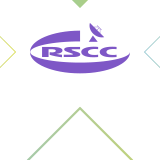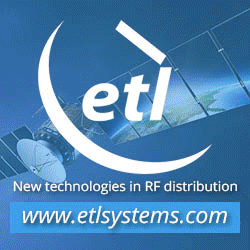NASA Provides $45M Boost
to US Small Businesses
Small businesses are vital
to NASA’s mission, helping expand humanity’s
presence in space and improve life on Earth.
NASA has selected 365 U.S. small business
proposals for initial funding from the agency’s
Small Business Innovation Research (SBIR) and
Small Business Technology Transfer (STTR)
program, a total investment of more than $45
million.
“At NASA, we recognize that
small businesses are facing unprecedented
challenges due to the pandemic,” said Jim
Reuter, associate administrator for the agency’s
Space Technology Mission Directorate (STMD).
“This year, to get funds into the hands of small
businesses sooner, we accelerated the release of
the 2021 SBIR/STTR Phase I solicitation by two
months. We hope the expedited funding helps
provide a near-term boost for future success.”
NASA has selected 365
technology proposals for the first phase of
funding from the agency’s Small Business
Innovation Research
NASA selected 289 small
businesses and 47 research institutions to
receive Phase I funding this year. More than 30%
of the awards will go to first-time NASA
SBIR/STTR recipients. “We are excited to have a
large cohort of new small businesses join the
NASA family via the SBIR/STTR program,” Reuter
said.
Through the program, NASA
works with U.S. small businesses and research
institutions to advance cutting-edge
technologies. The agency provides up to $125,000
for companies to establish the merit and
feasibility of their innovations. Phase I SBIR
contracts are awarded to small businesses and
last for six months, while Phase I STTR
contracts are awarded to small businesses in
partnership with a research institution and last
for 13 months. Based on their progress during
Phase I, companies may submit proposals to
subsequent SBIR/STTR opportunities and receive
additional funding.
NASA selected proposals to
receive funding based on their technical merit
and commercial potential. The selections span
the breadth of NASA missions to empower the
agency’s work in human exploration, space
technology, science, and aeronautics. Some
examples include:
Syrnatec Inc., a
woman-owned small business and first-time NASA
SBIR awardee based in Middletown, Connecticut,
will develop radiation tolerant, high-voltage,
high-power diodes. This power management and
distribution technology could enable the next
generation of efficient high-power green
technology in space and on Earth.
Innoveering LLC, a Hispanic
American-owned small business and first-time
program awardee based in Ronkonkoma, New York,
will use its SBIR award to develop a wind sensor
to enable a flight path control system for
high-altitude scientific balloon operations.
Outside of NASA, this technology could aid in
providing more accurate weather predictions.
Under an STTR award,
Qubitekk of Vista, California, will partner with
the University of New Mexico, a Hispanic-Serving
Institution. Together, they will develop a
cheaper and more compact hardware package that
provides a reliable calibration tool for
detectors of quantum-sized information. This
technology could be applied to secure satellite
communication networks, deep-space laser
communications, cybersecurity, and computing.
The small businesses and
research institutions selected are as varied as
the technologies they will develop. Hailing from
38 states, Washington, D.C., and Puerto Rico,
they include women-owned, minority-owned, and
veteran-owned small businesses, as well as
Minority Serving Institutions (MSIs) and other
types of research organizations.
The program is enhancing
its efforts to further increase STTR
participation by MSIs, including Historically
Black Colleges and Universities, by launching
two pilot initiatives. Under a cooperative
agreement, NASA will work directly with MSI STEM
Research and Development Consortium to increase
its audience’s participation in STTR.
Additionally, the program will collaborate with
NASA’s Minority University Research and
Education Project to offer research planning
grants and incentivize partnerships between MSIs
and small businesses. The grants will also let
MSIs develop plans for proposing to an STTR
solicitation subtopic.
“NASA SBIR/STTR interfaces
with entrepreneurs pushing the boundaries of
innovation,” said Program Executive Jason L.
Kessler. “We’re proud to partner with a diverse
group of innovators and expand the reach of NASA
across the country.”
NASA’s SBIR/STTR program is
part of STMD and managed by NASA’s Ames Research
Center in California’s Silicon Valley.










